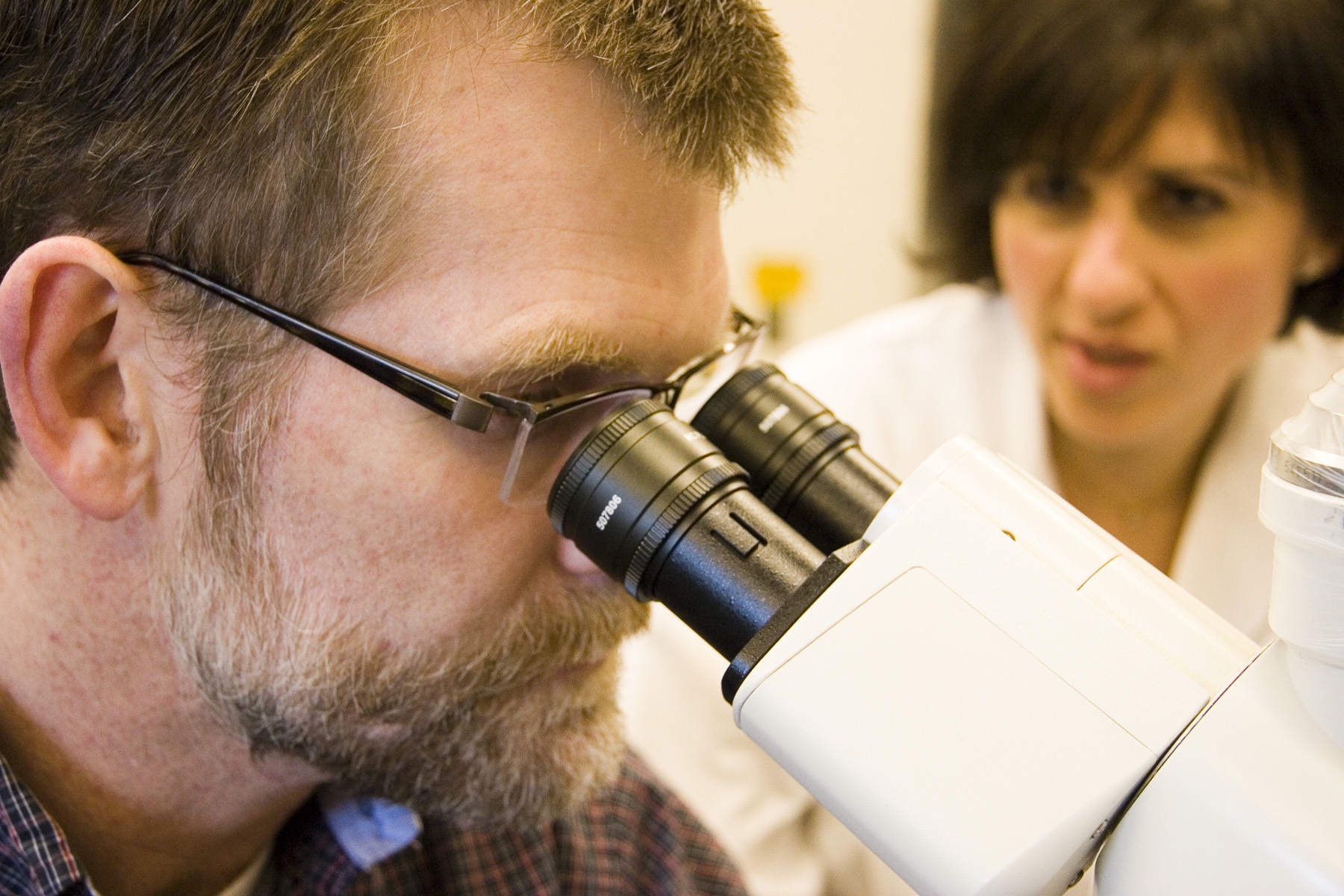Remedy With a Pedigree
By Jim Oldfield
Researchers at Sunnybrook Research Institute (SRI) and Beth Israel Deaconess Medical Center have found that a new drug may be an effective therapy for acute lung injury, acute respiratory distress syndrome and multi-organ dysfunction syndrome (ALI/ARDS/MODS), a group of related conditions in which almost all current treatments fail.
The drug, called vasculotide, has shown promise in preclinical studies as a treatment for chronic wounds in diabetes. The current study examined its impact in a preclinical model of ALI/ARDS/MODS and showed that vasculotide increased the rate of survival by more than 40%.
"These are devastating diseases for which there are supportive therapies such as surfactants and ventilation, but a lack of frontline meds," says Dr. Daniel Dumont, a senior scientist in molecular and cellular biology at SRI who co-discovered the drug and co-authored the study. "Vasculotide could be the first frontline drug for these patients, to help against vascular leak in the lung, and prevent kidney and multiple organ damage driven by sepsis and other diseases that cause a dysfunctional endothelial response."
Sepsis, or blood poisoning, often results from a severe infection. Without rapid, effective treatment patients may deteriorate to the point of developing ALI/ARDS/MODS. This constellation of diseases is marked by increased inflammation-and therefore permeability-in the endothelial cells that line the inner layer of blood vessels. When those cells start to separate, an individual's homeostasis, or physiological balance, is lost: fluid leaks from the vessels and blood pressure drops, compromising cardiac function. Activated white blood cells then spill into damaged tissue and organs to repair them - but instead cause more damage.
Vasculotide works by limiting endothelial inflammation and leakiness. "By improving the quantity and quality of the cell-cell adhesion proteins in the vasculature to keep the endothelial cells tightly associated, vasculotide prevents the loss of fluid and white blood cells," says Dr. Paul Van Slyke, a research associate in Dumont's lab who co-invented the drug and co-authored the study.
The study was led by Dr. Samir Parikh, a staff physician and research associate at Beth Israel Deaconess Medical Center. Dumont, who is also a professor at the University of Toronto, approached Parikh's group because they had expertise with the clinical and molecular aspects of ALI/ARDS/MODS. Parikh immediately expressed interest in testing vasculotide for that cluster of illnesses, which proves fatal in about one-half of the patients who get it.
Next steps for Dumont and Van Slyke are to do more research on vasculotide for these conditions at SRI and to interest a third party in sponsoring a clinical trial. Toward the latter, that Parikh led the study-together with results soon to be published by a German group showing that vasculotide protects the liver and kidney-should prove a boon. "There's almost a bias associated with publishing on your own drug," says Van Slyke. "If researchers from other centres have results that are consistent with each other and you've been at arm's length, that lends credibility to the work."
The growing evidence on the potential of vasculotide in ALI/ARDS/MODS - which includes research from three teams in three countries showing a preventive and therapeutic effect - has made Dumont hopeful a clinical trial is within reach. "Since the treatment is for an unmet medical need, U.S. Food and Drug Administration approval could be expedited through several mechanisms, all of which are attractive, as they could get the drug into the market and patients faster," he says.
Dumont's work is funded by the American Asthma Foundation, Canadian Institutes of Health Research and Heart and Stroke Foundation of Canada. Dumont holds the Canada Research Chair in Angiogenic and Lymphangiogenic Signalling.






